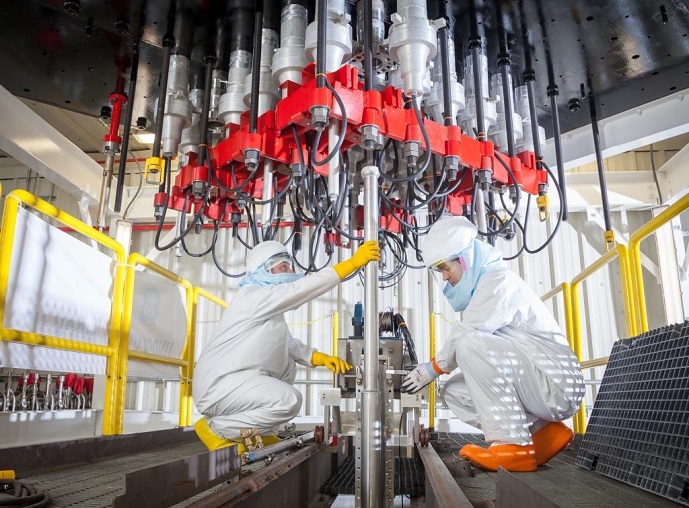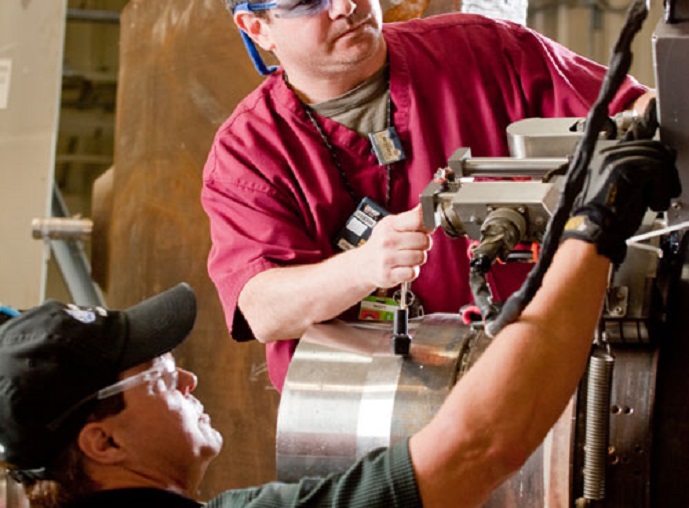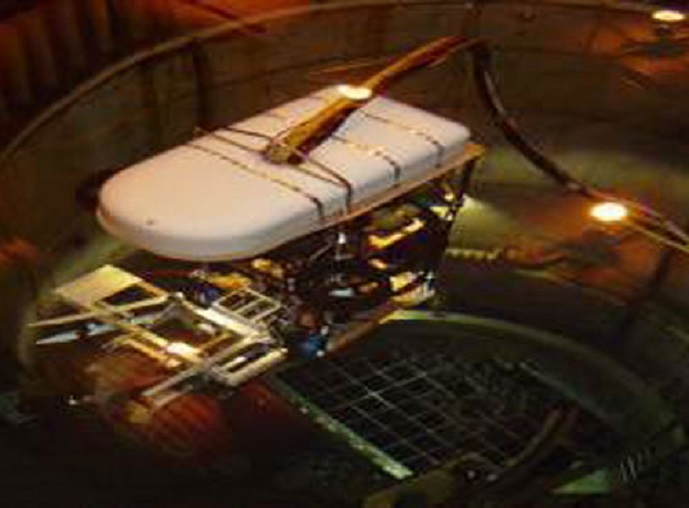LET US HELP YOU
For more than 60 years we have offered a full suite of outage services for our customers. From the first commercial boiling water reactor, Dresden 1 in 1960, to today’s advanced boiling water reactors, we have provided our customers the best technologies and expertise in the industry.
PRE-OUTAGE PLANNING

In preparation for a customer outage, GEH follows a rigorous pre-planning process. The Outage Readiness Review (ORR) process is aligned well to our customers’ and the nuclear industry’s pre-outage planning programs. The ORR process is designed to ensure predictable project outcomes through a multi-discipline, experienced-based readiness evaluation. Effective planning and preparation is an organization-wide focus and essential for successful outage execution. The planning review process consists of a series of sessions including a T-90 day, T-60 day, T-30, Complex/High Risk Tooling and Post-Outage reviews. Targeted review areas include:
- Scope, schedules, pre-outage, and outage actions
- Commercial and financial structures
- Personnel staffing, experience levels and scheduled coverage
- Equipment and materials
- Risk assessments and contingency planning
- Industrial Safety, Radiological/ALARA, Foreign Material Exclusion, and Communication Planning
- Implementation of Lessons Learned (LL), Operating Experience (OE), and Customers Critical to Quality (CTQ’s).
A required meeting quorum and thorough checklist ensure consistent and comprehensive process completion.
Behind the Scenes: GEH Training Center
EMPLOYEE TRAINING PROGRAMS AND FACILITIES

The foundation of strong outage execution performance starts with solid training programs and curriculum. For GEH’s Field Service employees, we maintain standardized and credible training curriculums ranging from basic “new-to-nuclear” through the highly experienced Project Management training. This curriculum is designated by the following level of outage role:
Technician Level:
Cape Fear Community College Program (CFCC)
- Associates Degree in Nuclear Maintenance Technology
- 3-year commitment as Reactor Service Technician (RST) Refuel Floor Activities Operations Course (RFAO)
- Initial RST Training in San Jose & Wilmington (3 weeks)
FME Program
- Eight hour initial & two annual hour refresher
Task-Based Training modules specific for Refuel Floor, In-Service Inspections and Under-Vessel Technicians
Field Engineers:
Field Engineering Program
- 18 month leadership and technical training program
- Curriculum includes classroom, practical and On The Job experiences
INPO First Line Supervisor Course and Human Performance Leadership
Project Managers:
Project Management Training
- GE Corporate Project Management University (PMU) certification
- PM competency and leadership courses
GEH maintains several training facilities for the purpose of providing real-life, hands-on training experiences in the areas of refuel floor, inspections and under-vessel services.
Our full-scale BWR facility in San Jose, California allows employees to demonstrate skills in reactor disassembly, reassembly, rigging, underwater camera handling, fuel movement and other in-vessel maintenance activities.
Our new technology development center in San Jose will support the development and testing of advanced services tooling and repair procedures using robotic, non-destructive examination, precision electrical-discharge machining and welding technologies. Employees at the center with in-depth knowledge of reactor servicing, fuel movement, and reactor internals modification will help assure our tooling and systems support efficient and flawless outage execution.
In Wilmington, North Carolina, we maintain a training facility for under-vessel and Hydraulic Control Unit maintenance simulating real-life plant conditions and spatial constraints.
The new reactor under-vessel training area is a state-of-the-art, full-size replica of the operating area underneath a boiling water nuclear reactor. The training area has multiple work locations to better simulate real world scenarios including the simultaneous use of toolsets and work processes. Increasing the proficiency of field services teams enables outage services work to be completed in less time and results in reduced radiation dosage for reactor workers.
The use of over 20 mobile mock up units allows GEH to provide just-in-time training either at a customer site or at a GEH facility to ensure employees are familiar with specific tasks and build confidence in skills prior to critical path outage execution.
LESSONS LEARNED AND OPERATING EXPERIENCE EXCELLENCE

GEH maintains a strong culture of Continuous Learning and Improvement. To enable effective transfer of learning, GEH has a formal Lessons Learned (LL) and Operating Experience (OE) program specific to Outage Management. The purpose of the LL program is to share and use knowledge derived from internal and external sources to promote the recurrence of desirable outcomes, or preclude the recurrence of undesirable outcomes. Our program establishes management expectations for sharing information and defines the mechanisms for developing, utilizing and incorporating lessons learned into work processes, facilities, equipment design and operation, and work practices to promote safety, quality and cost effectiveness. The LL Program also provides a means of communicating experiences which can potentially reduce risk, improve efficiency, and enhance the cost effectiveness of customer outages. All GEH Lessons Learned are maintained through an online electronic database that is accessible globally and searchable based on various search methods. GEH uses this extensive lessons learned database gained from all experiences to improve our customer’s outage performance and ensure consistent execution year-over-year.
HUMAN PERFORMANCE PROGRAM

Providing prompt feedback and coaching to individuals and work teams is critical to successful outage execution. The GEH Human Performance (HU) Observation & Coaching Program consists of the process, methods and tools to provide this feedback and coaching, both positive and corrective. The purpose of the program is to create opportunities to engage the entire workforce in positive reinforcement of the behaviors believed by the organization to be valuable for error prevention and nuclear safety and security. The objective of the program is to leverage the organization’s capacity to be proactive and constructively self-critical in a manner that encourages increasingly high levels of safety, quality, reliability and consistency. The methods of observation implemented by GEH during outage projects include: one-over-one, peer-to-peer, management and paired observations. All GEH observations are collected and reported in a centralized database that is available to customers for review. Daily HU trending reports are distributed and utilized during onsite outage execution to ensure individuals and work teams are aware and proactively addressing HU event precursors.
ADVANCED TOOLING CAPABILITIES

GEH continually seeks processes and methods to improve the operation and reliability of the BWR fleet. With Advanced Tooling, we continue to provide equipment servicing that incorporates industry lessons learned with targets of dose reduction, schedule enhancement, and increased operational margin. The Advanced Tooling team has delivered a wide range of equipment covering all aspects of reactor services.
Examples include:
- Lifting Strongbacks
- Nozzle plugs
- Equipment segmentation devices
- 360 degree platforms
- Remote under vessel servicing tools
- Stud/Nut handling tools
- Refueling masts
- In-Vessel servicing grapples
- Auxiliary platforms
